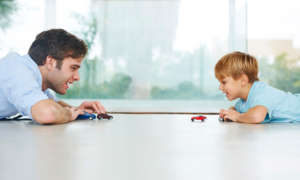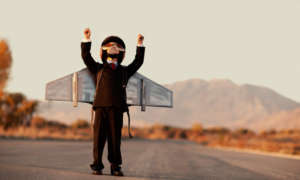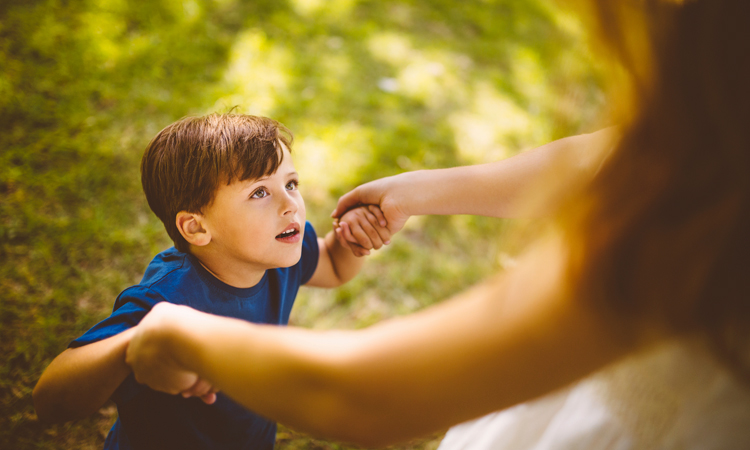As parents, we strive to raise our children the right way. We agonize over what to teach them to bring functioning adults into the world. And yet, kids have a secret, hidden tier of learning. This is the unconscious, imprinted learning we impart simply by living with them during their childhood.
1. They learn your relationship habits
How to interact in relationships is one of the primary things kids learn from their parents that impacts the rest of their lives.. Children raised with both parents (or with two partners in a relationship, at any rate), may mirror their own relationships later in life based on how the adults in their childhood interacted with each other. If they saw destructive fights, patterns of abuse or unfaithful partners, they could grow up to expect this to be the norm in their own relationships.
The most profound effect, however, is the child raised in a single-parent home. There’s no way around it; being raised by a single parent excludes a whole world of personal relationships from the child’s experience. Making sure children maintain close relationships with relatives or friends who have nurturing partners can provide the next best model for guidance in this area.
 2. They talk like you
2. They talk like you
In fact, studies have shown that even newborn babies pick up the tone and accent of their environment in the womb; hence, even their early crying has an “accent” depending on their parents’ language. Children raised in a two-language family will also be fluent in both languages. Children raised by parents with a large vocabulary usually do better on school language tests. And so on.
But be aware that your children also pick up your choice of words. They will file away every curse you have ever uttered. If you use derogatory slurs against people, they will too. The way you phrase things, the approach you take to sentence logic, shapes and molds their thinking in ways you can’t even anticipate. If your outlook is one of gloom and doom, their language will be one of defeat. If your outlook is positive and upbeat, they’ll speak in sunny terms of optimism.
3. They learn how you keep the house
It may be hard to believe when junior’s room resembles a junkyard and you’re constantly nagging him to clean things up, but kids do learn about housekeeping from you. Whether they practice it is another matter. But too many children of hoarders have grown up to become hoarders themselves to ignore this effect. The same goes for children of parents with compulsive cleaning tendencies.
This learning shows up long after they’ve left your care. While they still live with you, they might be more prone to doing things the opposite of your way, just to establish their identity. But afterward, they will usually adopt your housekeeping habits because “they’re the adult now,” and this is the way to do things.
 4. They pick up your career skills
4. They pick up your career skills
This is a pleasant surprise for many parents. Naturally, if you have a formal education, you’ll be better at helping your children with their homework. But even when you don’t sit down to teach one on one, children will quickly learn how you solve problems and deal with the adult world. While children may protest and grow fidgety when they have to wait in line with you at the bank or the tax accountant, they still can’t help but pick up some “shop talk” from you when you talk about work.
You can turn this to your advantage by participating in “take your kid to work” days at your job, if they’re allowed. And by all means, occasionally share some “grown-up business” with your kids. You’ll be surprised at what they retain. Even if they don’t understand it now, years later something will click, and they’ll have your experience to thank for it.
5. They learn your bad habits
If you’re addicted to anything, your kids will know it best. Do not think for a minute that you can hide your secret bad habits from your kids. They will go through your drawers as you sleep, they’ll browse your Internet history when you leave your tablet logged on, and they watch where you spend your money.
As with your housekeeping skills and career choices, your bad habits are something your children can’t help but notice. And even if your kids rebel against everything else, an indulgent vice of yours is something they’re likely to internalize, reasoning, “My dad drank, and it didn’t kill him.” Furthermore, they may infer other attitudes you have behind your weaknesses, such as reasoning “Life is short, you might as well party.”
These are the surprising effects of parenting, the parts nobody gives much attention. Learning is a subconscious, intuitive thing after all, so we have to be careful not only what we teach our children, but what kinds of examples we’re setting for them.


